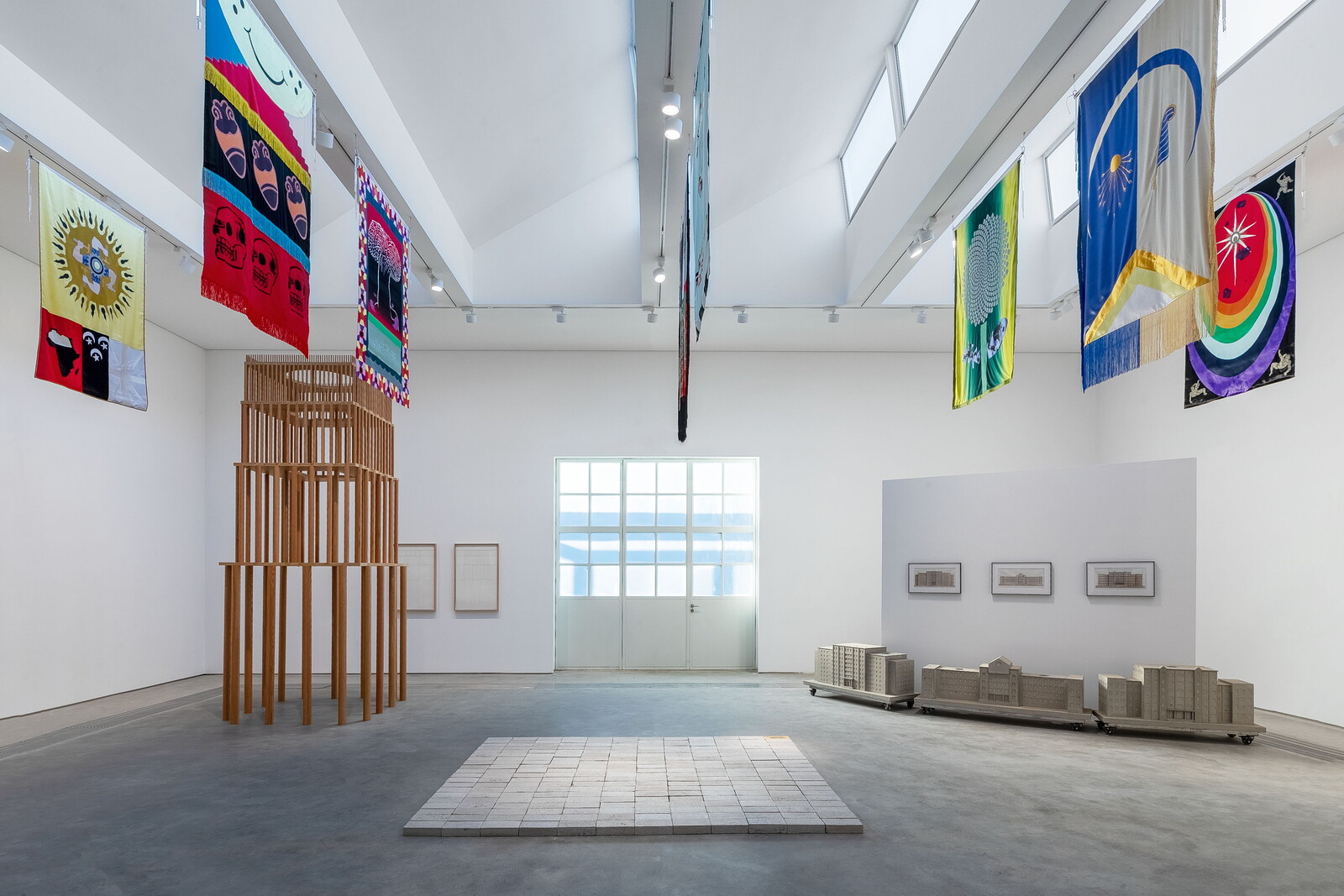December 17, 2022–May 7, 2023
Middle First St. 798 Art District, 4 Jiuxianqiao Road, Chaoyang District
100015 Beijing
China
Hours: Tuesday–Sunday 10am–6pm
T +86 10 5978 9768
F +86 10 5978 9764
lm@longmarchspace.com
Inspired by the architectural text “Steadfastly Lower the Standards in Nonproductive Construction” (1955), which informed the counter-narrative coined for the previous iteration of Steadfastly Raise the Standards in Nonproductive Construction (2018), the curator Evonne Jiawei Yuan addresses the canonical forms of “productivity” anchored by the two architectural typologies—monument and skyscraper—as well as its dialectics of “productive” and “nonproductive,” with artworks by eight artists (-duos) including Chen Wei, Cui Jie, Liu Ren, Liu Wei, Lu Lei, Inga Svala Thorsdottir & Wu Shanzhuan, Joey Xia, Zeng Jiahui in Long March independent project, Steadfastly Revise for the Standards in Nonproductive Construction, Part I: Solid Molds. The notions of monuments bind people’s will to social production, and the skyscrapers’ pursuit of height and speed in the context of the social output are mutually supportive and reliant on one another.
Part II: Liquid Circulates rather focuses on the other two architectural genres, civic squares and frontlines, that encourage the mobility of “productivity.” Civic squares are public spaces where the exchange of opinion and social integration occur, undifferentiated in both the physical and virtual worlds. Instead, frontlines are dedicated to regional activities as part of the infrastructure network. Eleven (sets of) works of art by Shuyi Cao, Julian Junyuan Feng, Hu Wei, Liu Chuang, Liu Yujia, Nabuqi, Pu Yingwei, Zhang Ruyi, and Vivien Zhang are included in this exhibition, investigate architectural projects, urban narratives, natural spectacles as attributes of “productive” or “nonproductive” architecture, and the political order concealed in their “standards.”
The binary opposition between “lower” and “raise” primarily led to negate the excessive pursuit of aggressive cost-saving behaviors and emphasize the binary of mere hypocrisy in productivity propaganda. Such a counter-narrative in the previous exhibition was designed to present how social individuals carry through spatial practices with their spatial abilities and rights to the space, thus acting against the “administrative rationalization”. However, in face of the shrinking world currently being crushed by sudden public crises, there is no return to normal and it is rather important to clarify what we mean by being “functional” as living machines, moving beyond stereotypes of labor discipline and self-exploitation. It is a rewarding attempt to take a further look at how the prototype of the “productive” and/or the “nonproductive” is appropriated as a methodology for urban planning and how it helps shape the built environment in-and-of the country and its socialist allies, meanwhile, expanding the scope of the study into multiple geographies for some alternative statements or exceptional circumstances.
The idea of “revise” thus emerges out of the critical juxtaposition in scale, proportion, placement and materials, of singular immortal architecture and collective anonymous buildings that conform to the constantly changing “standards”, whether “lowered” or “raised” as claimed. Steadfastly Revise for the Standards in Nonproductive Construction is hereby brought up to examine the existential meaning of these “standards”, trying to establish a symbiosis in-between and investigate how the nuanced balance endures over different temporalities, the modern future and the future modern in particular. The “standards” were vaguely defined in terms of Marx’s reproduction schemes at the early stage of socialist industrialisation, however, it was much easier for the bureaucrats and technocrats to actualize the reformation by making a clear classification that “productive construction” was industrial estates as economic instruments and “nonproductive construction” were merely for public services, which would not contribute to the making of the country. A great number of industrial ruins have been produced by capital abandonment with the rise of mixed economy, since they are no longer profitable and no longer have use-value in a Chinese city re-embracing Western consumerism and materialism. Such a decline is inevitable though, to “revise the standards” is drafted based on the fierce introspection, adaptation, and reinvention illustrated by characteristic governmentalities, aiming at absorbing the pressure that comes from social changes and not falling to ossification.









